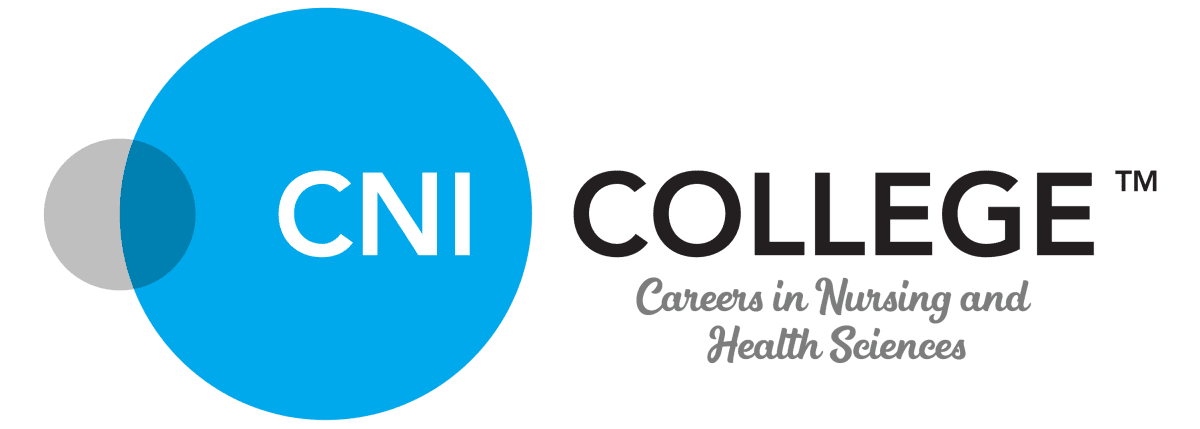In the realm of healthcare, the significance of nutrition and dietetics cannot be overstated. As foundational elements of health and vitality, understanding the basics of nutrition is crucial for nurses and healthcare workers who are on the front lines of patient care. This knowledge not only aids in promoting overall well-being but also plays a pivotal role in supporting recovery processes. For healthcare professionals at CNI College, delving into the intricacies of nutrition and dietetics offers an opportunity to enhance patient outcomes significantly. Through this blog post, we aim to unfold the core principles of nutrition and illustrate how a well-informed dietary approach can become a cornerstone of effective patient care and advising. By bridging the gap between nutritional science and clinical application, we can empower healthcare workers to make a profound impact on the health trajectories of those they serve.
Understanding the Basics of Nutrition
Macronutrients: Proteins, Carbohydrates, and Fats
At the core of nutrition are the macronutrients: proteins, carbohydrates, and fats, each playing unique and vital roles in the body.
- Proteins are the building blocks of life, essential for the growth, repair, and maintenance of body tissues. They are crucial for immune function, hormone production, and the synthesis of enzymes.
- Carbohydrates are the body’s primary energy source, fueling everything from brain function to physical activity. They range from simple sugars to complex fibers that promote digestive health.
- Fats, often misunderstood, are vital for absorbing fat-soluble vitamins (A, D, E, K), providing energy, and supporting cell growth.
Balancing these macronutrients is key to maintaining optimal health, as each plays a role in metabolic processes, energy levels, and overall well-being. A balanced diet that includes a variety of foods can help ensure that one gets the right amount of each macronutrient, contributing to disease prevention and health promotion.
Micronutrients: Vitamins and Minerals
While macronutrients provide the body’s necessary energy and structural components, micronutrients —vitamins and minerals— support the body at a cellular level.
- Vitamins are organic compounds that are crucial for processes such as energy production, wound healing, and vision. For example, Vitamin D is essential for bone health and immune function, while Vitamin C is known for its role in skin health and immune defense.
- Minerals like calcium and iron support a myriad of functions from bone health to oxygen transport in the blood. Each micronutrient has unique sources, often found in fruits, vegetables, meats, and dairy products, making a varied diet essential for covering the spectrum of nutritional needs.
The consequences of micronutrient deficiencies can range from fatigue and weakened immunity to more severe health conditions like osteoporosis and anemia. Conversely, excess intake of certain vitamins and minerals can lead to toxicity and health complications, highlighting the importance of a balanced approach to micronutrient intake.
Hydration and Its Role in Health
Water is often overlooked as a nutrient, yet it is critical for survival and health. It plays a central role in maintaining body temperature, transporting nutrients, and removing waste. Proper hydration is essential for nearly every bodily function, including digestion, circulation, and absorption of nutrients. Signs of dehydration include thirst, dry mouth, fatigue, and dizziness, and can quickly escalate to more severe complications if not addressed.
Strategies for maintaining hydration include drinking water regularly throughout the day, consuming foods high in water content like fruits and vegetables, and monitoring fluid loss during hot weather or exercise. For healthcare professionals, understanding and promoting the importance of hydration is a simple yet effective way to enhance patient care and prevent the myriad issues that can arise from inadequate fluid intake.
Incorporating a solid understanding of these nutritional fundamentals into patient care enables healthcare workers to advise on diet more effectively, fostering a holistic approach to health and recovery.

The Impact of Diet on Health and Disease
Preventing Nutritional Deficiencies
Nutritional deficiencies occur when the body doesn’t get enough essential nutrients, leading to a variety of health issues. Common deficiencies include iron, vitamin D, calcium, and vitamin B12.
- Iron deficiency can result in anemia, causing fatigue and weakened immunity
- Vitamin D and calcium are crucial for bone health, with their deficiencies leading to osteoporosis.
- Vitamin B12 deficiency affects nerve function and can result in neurological and psychiatric symptoms.
Preventing these deficiencies involves a diet rich in diverse food groups: lean meats and plant-based proteins for iron; fortified dairy products, fatty fish, and sunlight exposure for vitamin D; dairy products and green leafy vegetables for calcium; and animal products and fortified foods for vitamin B12. For individuals with dietary restrictions or health conditions that affect nutrient absorption, supplements may be necessary under medical guidance.
Diet and Chronic Diseases
Diet plays a critical role in the development, management, and prevention of chronic diseases such as diabetes, heart disease, and obesity. High consumption of processed foods, sugars, and saturated fats is linked to an increased risk of these conditions, while a diet rich in whole foods, fruits, vegetables, lean proteins, and healthy fats can have protective effects.
To prevent or manage diabetes, focus on a diet low in refined sugars and high in fiber, which helps regulate blood sugar levels. For heart disease prevention, a diet low in saturated fats and high in whole grains, fruits, vegetables, and healthy fats like those from fish and avocados is recommended. Managing obesity involves a balanced diet that prioritizes nutrient-dense foods over calorie-dense but nutrient-poor options, combined with regular physical activity.
Nutrition and Immune Function

Nutrition profoundly influences the immune system and an individual’s ability to resist diseases. A diet lacking in essential nutrients can impair the production and activity of immune cells and antibodies. Key nutrients that support immune health include vitamin C, vitamin D, zinc, selenium, iron, and protein.
Vitamin C, found in citrus fruits, strawberries, bell peppers, and broccoli, is known for its role in supporting the immune defense by enhancing white blood cell function. Vitamin D, which can be obtained from sunlight exposure and fatty fish, modulates the immune response. Zinc, present in meat, seeds, nuts, and dairy, is crucial for immune cell function and signaling. Selenium, found in Brazil nuts, fish, and eggs, has antioxidant properties that help combat oxidative stress.
A balanced diet that includes a wide variety of nutrients is essential for maintaining a robust immune system. In addition to diet, lifestyle factors such as adequate sleep, stress management, and regular physical activity contribute to optimal immune function.
Understanding the impact of diet on health and disease underscores the importance of nutritional knowledge in patient care. By guiding patients in making informed dietary choices, healthcare professionals can play a pivotal role in disease prevention, management, and the promotion of long-term health.
The Role of Nurses and Healthcare Workers in Nutritional Care
Educating Patients on Nutrition
Educating patients about nutrition is a critical component of comprehensive healthcare, empowering them to make informed choices that promote health and facilitate recovery. Nurses and healthcare workers can implement several strategies to effectively communicate the importance of nutrition:
- Simplify Complex Information: Break down nutritional concepts into easy-to-understand language. Use visual aids, such as charts and food models, to illustrate healthy portion sizes and the composition of a balanced diet.
- Personalize Nutritional Advice: Tailor dietary recommendations to the individual’s health conditions, lifestyle, cultural preferences, and personal goals. This personalized approach increases the relevance and impact of the information.
- Leverage Teach-Back Methods: Ask patients to explain the nutritional guidance in their own words. This technique ensures understanding and identifies areas needing clarification.
- Provide Practical Tips: Offer actionable advice, such as meal planning tips, healthy cooking techniques, and strategies for eating well on a budget or with a busy schedule.
- Utilize Technology: Recommend reliable websites, apps, and other digital resources that provide nutritional information and support. This can help patients access information and track their dietary habits outside of clinical settings.
Monitoring and Supporting Nutritional Interventions
Nurses and healthcare workers play a vital role in monitoring patients’ nutritional status and the effectiveness of dietary interventions. This process includes:
- Conducting Regular Nutritional Assessments: Use tools and techniques, such as dietary recalls, food diaries, and physical examinations, to evaluate nutritional intake and identify potential deficiencies or excesses.
- Setting Realistic Goals: Work with patients to set achievable nutrition goals that contribute to their overall health objectives. Regularly review and adjust these goals based on progress and changing health needs.
- Collaborating with Interdisciplinary Teams: Nutritional care often requires the expertise of dietitians, physicians, physical therapists, and other specialists. Collaborate with these professionals to create comprehensive care plans that address all aspects of a patient’s health.
- Providing Emotional Support: Encourage patients facing dietary changes, especially those with chronic conditions or significant dietary restrictions. Offer empathy, understanding, and motivational support to help them overcome challenges.
Through education, monitoring, and interdisciplinary collaboration, nurses and healthcare workers can significantly enhance the nutritional care of their patients. By integrating nutrition into patient care, they contribute to improved health outcomes, faster recovery times, and a higher quality of life for those they serve.
Better Care Through Nutrition
The integral role of nutrition and dietetics within the healthcare landscape cannot be understated. As we’ve explored, a deep understanding of nutritional science—spanning the spectrum from macronutrients and micronutrients to the critical role of hydration—lays the foundation for promoting health and preventing disease. The direct link between diet and chronic diseases, alongside the pivotal influence of nutrition on immune function, underscores the power of dietary interventions in shaping patient health outcomes.
For nurses and healthcare workers, embracing nutritional knowledge is not just about expanding one’s professional skill set; it’s about enhancing the holistic care we provide to our patients. By integrating principles of nutrition and dietetics into patient care, healthcare professionals can offer more comprehensive advice, support, and interventions that address the full spectrum of patient needs. This approach not only aids in the prevention and management of diseases but also supports recovery and long-term health maintenance.

We encourage all nurses and healthcare workers to seize every opportunity to deepen their understanding of nutrition. Whether through continuing education, collaboration with dietitians, or self-study, enhancing your nutritional knowledge will empower you to make a significant impact on the lives of those you care for. Let’s commit to integrating this essential aspect of health into our patient care practices, aiming for improved outcomes and contributing to the overall well-being of our communities. Together, we can make nutrition a cornerstone of comprehensive healthcare, ensuring that our patients receive the best possible support on their journey to health and wellness.

